
Hazaras May Play Key Role in Afghan Vote
Long-Oppressed Minority Is Wooed By Karzai, Others
Long-Oppressed Minority Is Wooed By Karzai, Others
Washington Post Foreign Service
Sunday, July 26, 2009
KABUL, Afghanistan, July 25 -- For generations, Afghanistan's Hazara minority has occupied the humblest niche in the country's complex ethnic mosaic. The political power structure has been dominated by the large southern Pashtun tribes, followed by the slightly less numerous northern Tajiks.
During various periods in history, the Shiite Hazaras have been forced from their lands and slaughtered in bouts of ethnic or religious "cleansing." In more recent times, they have often been relegated to lowly jobs as cart-pullers or domestic servants. The abused boy in the novel and movie "The Kite Runner," which generated much controversy here, came from a family of Hazara servants.
But the group now stands poised to play a decisive role in the Aug. 20 presidential and provincial council elections. It has produced a popular presidential candidate, independent Ramazan Bashardost, who is an extremely long shot but has been traveling the country nonstop, preaching a message of government reform and social justice.
Meanwhile, President Hamid Karzai, an ethnic Pashtun who is seeking reelection, and his major challengers are aggressively courting the Hazara vote. The group makes up as much as 20 percent of the country's electorate and had high voter-registration and turnout rates in the last presidential election, in 2004.
During various periods in history, the Shiite Hazaras have been forced from their lands and slaughtered in bouts of ethnic or religious "cleansing." In more recent times, they have often been relegated to lowly jobs as cart-pullers or domestic servants. The abused boy in the novel and movie "The Kite Runner," which generated much controversy here, came from a family of Hazara servants.
But the group now stands poised to play a decisive role in the Aug. 20 presidential and provincial council elections. It has produced a popular presidential candidate, independent Ramazan Bashardost, who is an extremely long shot but has been traveling the country nonstop, preaching a message of government reform and social justice.
Meanwhile, President Hamid Karzai, an ethnic Pashtun who is seeking reelection, and his major challengers are aggressively courting the Hazara vote. The group makes up as much as 20 percent of the country's electorate and had high voter-registration and turnout rates in the last presidential election, in 2004.
"We have become kingmakers," said Mohammed Mohaqeq, a leader of the main Hazara political party, Wahdat-e-Islami, who agreed to support Karzai in return for pledges that Hazaras would be given control of several ministries and possibly a newly created province. "I cannot get elected, because my Pashtun brothers might not support me, but our people can make a big difference in deciding who wins," he said.
Mohaqeq has been campaigning in various provinces for Karzai, who has remained largely invisible during the run-up to the elections. Mohaqeq's party has organized an army of campaign workers and has fielded a slate of 14 candidates for the upper house of parliament and provincial councils, including one young man whose posters depict an old Hazara cart-puller bent under a load of goods.
Mohaqeq has been campaigning in various provinces for Karzai, who has remained largely invisible during the run-up to the elections. Mohaqeq's party has organized an army of campaign workers and has fielded a slate of 14 candidates for the upper house of parliament and provincial councils, including one young man whose posters depict an old Hazara cart-puller bent under a load of goods.
Karzai, whose second vice presidential pick is a Hazara, took pains to appease conservative Hazara leaders in March by approving a controversial Shiite family law, even though it outraged human rights groups because it subjected Hazara women to the absolute control of their fathers and husbands.
Yet the political emancipation of Afghanistan's Hazaras, whose children are flocking to universities and office jobs, has created a generational and political split in a community that long fell in lockstep behind ethnic militia or religious leaders such as Mohaqeq as a matter of survival.
Many older or less educated Hazaras still express strong loyalty to such leaders and say they intend to follow their political instructions on voting day. But many others, including students and former refugees who have returned after years in Iran, said they value their political independence.
"I am Hazara, but we have rights now, and no one can tell me how to vote," said Farahmuz, 33, a laborer who joins dozens of men each morning at a traffic circle, hoping to obtain a few hours of work. "I don't want ethnic issues to come up in these elections, because they can destroy the country again," he said.
Yet the political emancipation of Afghanistan's Hazaras, whose children are flocking to universities and office jobs, has created a generational and political split in a community that long fell in lockstep behind ethnic militia or religious leaders such as Mohaqeq as a matter of survival.
Many older or less educated Hazaras still express strong loyalty to such leaders and say they intend to follow their political instructions on voting day. But many others, including students and former refugees who have returned after years in Iran, said they value their political independence.
"I am Hazara, but we have rights now, and no one can tell me how to vote," said Farahmuz, 33, a laborer who joins dozens of men each morning at a traffic circle, hoping to obtain a few hours of work. "I don't want ethnic issues to come up in these elections, because they can destroy the country again," he said.
Many Hazaras said their sentimental favorite for president is Bashardost, 44, a reformist legislator and former planning minister whose office is in a tent across the street from parliament. He has been campaigning in much the same style, accepting government-provided planes to reach distant provinces but then mingling with voters in parks and markets.
"I like Mr. Bashardost because he understands our problems," said Jawad, 25, a Kabul resident who grew up in exile in Iran and now supports his elderly parents as a construction worker. "He doesn't campaign in luxury vehicles like the others. He came to Shar-i-Nau Park on foot and sat there in a tent and listened to the people."
Reached on his cellphone Saturday in a noisy market in Khost province, Bashardost said he had discovered "a big distance between the ordinary people and the politicians in Kabul," adding: "I am sure we are going to see a revolution on August 20." He also said he had received a surprisingly large amount of support from Pashtuns at home and abroad. "This is something very new for Afghanistan," he said.
As a minority group that has long faced economic exploitation and social oppression, Hazaras seem to be taking particular advantage of political freedoms that have opened up since the fall of extremist Sunni Taliban rule in late 2001.
At a new private Shiite college in Kabul, teachers and students said the elections are important for their community, no matter who wins, because they represent a step toward modern, democratic practices that can help overcome Afghan traditions of ethnic and tribal competition.
"We need to develop the values and practices of democracy," said Amin Ahmadi, the college director. "Unfortunately, ethnic issues still play a large role in our country, and people don't trust leaders from other ethnic groups. But if we can have fair, transparent and peaceful elections, that will matter more than if we get a good or a bad president."
In West Kabul, the rundown but bustling heart of the capital's Hazara community, every public surface is papered with campaign posters. Yet many cart-pullers, mechanics and other workers said they are fed up with both national and ethnic politics. They said that their community suffers from widespread unemployment and poverty, but that no one in power has done anything to help.
"We are not happy with our government, and we are not happy with our own leaders," said Imam Ali Rahmat, 61, who sells firewood. "To them, we are just made of grime and dust. To us, they are just made of false promises. We need a change and we need new leaders, because we have lost our way."
"I like Mr. Bashardost because he understands our problems," said Jawad, 25, a Kabul resident who grew up in exile in Iran and now supports his elderly parents as a construction worker. "He doesn't campaign in luxury vehicles like the others. He came to Shar-i-Nau Park on foot and sat there in a tent and listened to the people."
Reached on his cellphone Saturday in a noisy market in Khost province, Bashardost said he had discovered "a big distance between the ordinary people and the politicians in Kabul," adding: "I am sure we are going to see a revolution on August 20." He also said he had received a surprisingly large amount of support from Pashtuns at home and abroad. "This is something very new for Afghanistan," he said.
As a minority group that has long faced economic exploitation and social oppression, Hazaras seem to be taking particular advantage of political freedoms that have opened up since the fall of extremist Sunni Taliban rule in late 2001.
At a new private Shiite college in Kabul, teachers and students said the elections are important for their community, no matter who wins, because they represent a step toward modern, democratic practices that can help overcome Afghan traditions of ethnic and tribal competition.
"We need to develop the values and practices of democracy," said Amin Ahmadi, the college director. "Unfortunately, ethnic issues still play a large role in our country, and people don't trust leaders from other ethnic groups. But if we can have fair, transparent and peaceful elections, that will matter more than if we get a good or a bad president."
In West Kabul, the rundown but bustling heart of the capital's Hazara community, every public surface is papered with campaign posters. Yet many cart-pullers, mechanics and other workers said they are fed up with both national and ethnic politics. They said that their community suffers from widespread unemployment and poverty, but that no one in power has done anything to help.
"We are not happy with our government, and we are not happy with our own leaders," said Imam Ali Rahmat, 61, who sells firewood. "To them, we are just made of grime and dust. To us, they are just made of false promises. We need a change and we need new leaders, because we have lost our way."
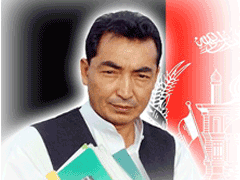





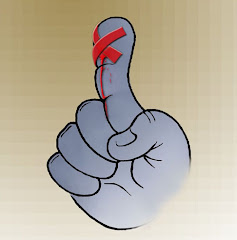

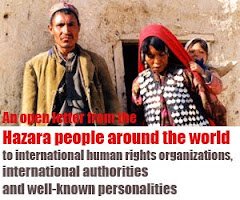


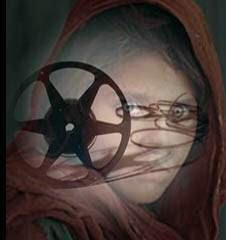
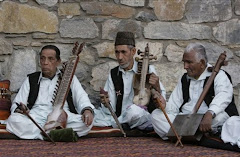


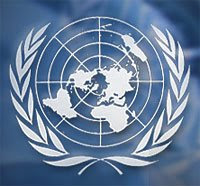
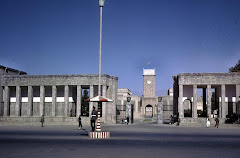



No comments:
Post a Comment